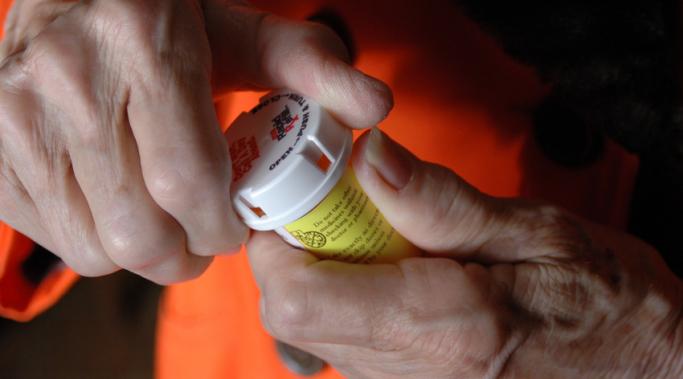A normal life is something I’m not very familiar with. I’ve never really had one. From the time I was a kid with an alcoholic father, to the teenage years I spent depressed, to my adult years dealing with psychiatrists, symptoms and medication side effects, I’ve never really enjoyed anything termed normalcy.
But the question is, does anyone with bipolar enjoy a normal life?
Breaking Bipolar
In the presentation I give to schoolchildren, I mention that, at various points in my history, I self-harmed. I cut myself. It’s a dirty truth, but there it is.
And not surprisingly, one teen asked me today, “Why would anyone cut themselves?”
Good question. Whole books have been written exploring this question and there is no single answer to why people self-harm. However, as to why most self-harm: it seemed like a good idea at the time.
Bipolar places limitations on our lives. It might be the fact that we can’t go out and enjoy a cocktail after work or it might be the fact that we can’t stay out all night. Or it might be the fact that we can’t work full time or that we have to live with medication side effects that make us sick. Limitations are there, no matter how you look at it.
But what happens when you don’t respect those limits? What happens when you choose to ignore them?
I can tell you. You feel like a dog’s breakfast. Just ask me. I did it on Monday.
In psychiatric studies, generally response and remission are recorded for the effectiveness of medications. So, a certain percentage of people positively respond to medications (get somewhat better) and a smaller percentage of people go into remission (get mostly better) from medications. The definitions of “respond” and “remit” vary, but typically it’s a reduction in symptoms, as measured on a scale, to a specified degree.
In practice, this means that a medication can still be deemed “effective” even if it only moves you from a 10 to a 5 on a scale of depression.
Well, this isn’t good enough.
While it seems hard to believe, some people want others to stay mentally ill and, indeed, sometimes even individuals themselves, choosing to maintain mental unwellness. You have the obvious example of people refusing medication and thus becoming very sick but there are other forces as well that can encourage a person to stay acutely, mentally ill.
There is something I have noticed about my busy bipolar brain. I’ve noticed that it seems obsessed with multitasking. It almost seems to not allow me to do one thing at once. If I sit down to watch TV, for example, I can’t stop myself from also picking up my computer or playing a game on my cell phone. When I sit down to write an article, I have to constantly also be checking in on my social media at the same time. People always wonder how I can be everywhere at once. That’s easy. I’m everywhere at once because my brain is everywhere at once.
Bipolar moods vary in duration by person but typically, an untreated bipolar mood can last months or even years. All a bipolar disorder diagnosis requires is the presence of one manic/hypomanic mood episode and one depressed mood episode. This means that a person could be in a year-long depression and have only experienced one week of mania, a year ago, and still qualify for a bipolar diagnosis.
This is much to the surprise of many as there is a pervasive belief that bipolar disorder is about frequent “mood swings.” However, simply “being moody” is not indicative of bipolar disorder.
Bipolar disorder is a scary illness, but sometimes even scarier is the idea of treatment. Logically, going to the doctor, getting a diagnosis and getting help doesn’t sound scary, but if you’re the one faced with psychiatrists, personal, probing questions, destroying what you know and treatments that might make you feel worse before you feel better, you might find the concept daunting.
But what do you do if you’re a loved one of a person with bipolar (or another mental illness) who is refusing treatment?
When I speak to kids about my experience with bipolar disorder, really, I have a series of failures to explain. I tell them how treatment after treatment failed. I talk about drug failures, the failure of the vagus nerve stimulator and the failure of electroconvulsive therapy. I lot of my sentences have the word, “unfortunately,” in them.
And after one of my presentations last week, one person asked what I would say to someone who was going through a similar experience. I thought that was a very important question.
So here’s what I would say to someone who’s experiencing treatment failure.
I recently finished an 8-week mindfulness meditation course. I went into it not knowing why I was there, other than the fact that my doctor had recommended it. I went in not knowing what the outcome was supposed to be. When we were asked to write goals for the course, mine were blank. I had none. I really just wanted to see if there was any benefit to all this mindfulness meditation stuff.
Turns out, I believe that there is benefit in mindfulness meditation. And here’s some of what you might find in a course.




![MP900405644[1]](/sites/default/files/styles/blog_listing/public/uploads/2013/06/MP9004056441-1024x685.jpg?itok=sLTFbNTj)



![MP900390526[1]](/sites/default/files/styles/blog_listing/public/uploads/2013/05/MP9003905261.jpg?itok=8oVaR4Fn)
